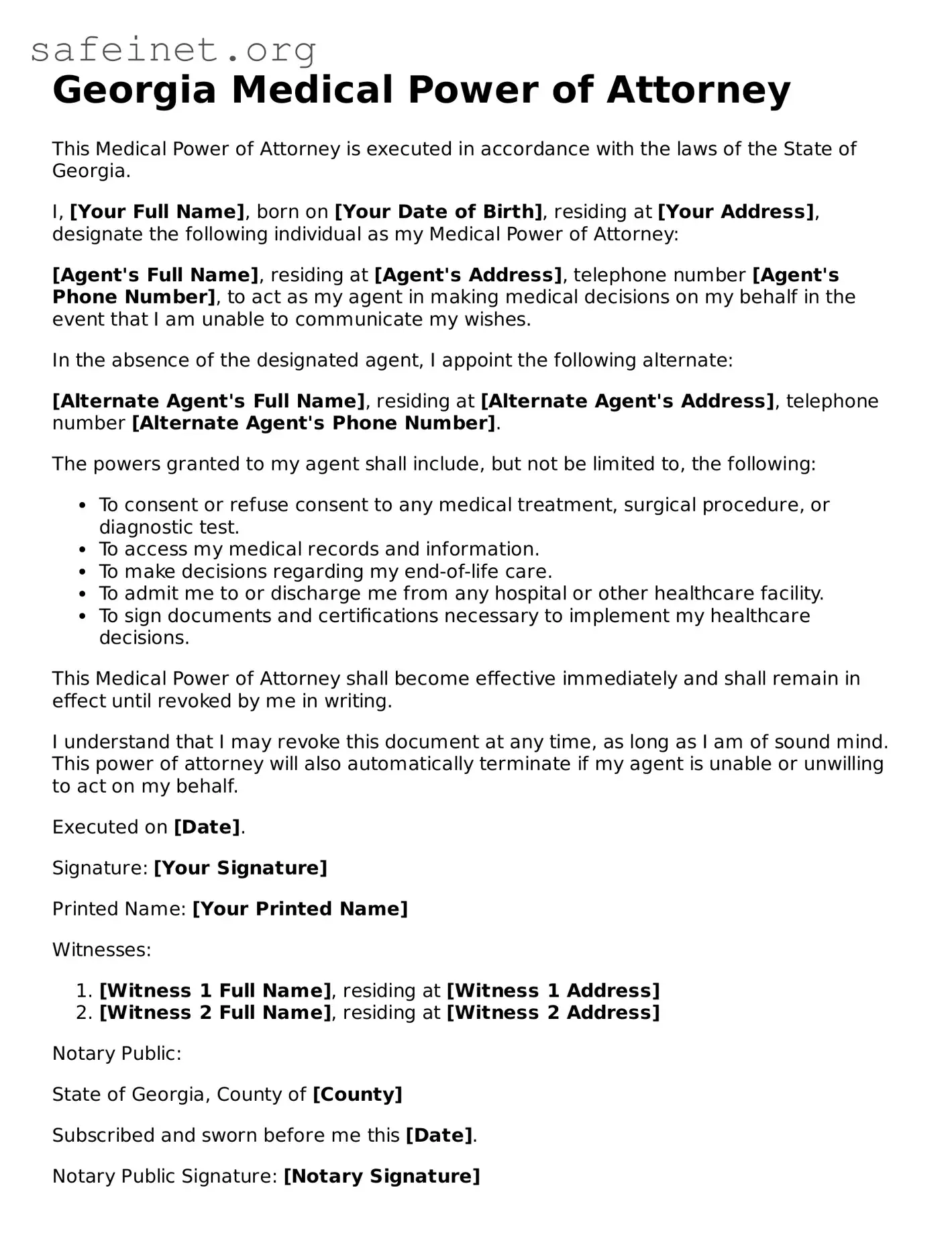What is a Medical Power of Attorney in Georgia?
A Medical Power of Attorney is a legal document that allows you to appoint someone to make medical decisions on your behalf if you become unable to do so. This person, known as your agent, can make important choices regarding your care, treatments, and any medical procedures you might need.
Who can be appointed as an agent in Georgia?
In Georgia, you can choose almost any adult to be your agent. This person should be someone you trust to make healthcare decisions that align with your wishes. It is wise to discuss your preferences and values with them before appointing them.
How do I create a Medical Power of Attorney in Georgia?
You can create a Medical Power of Attorney by filling out a specific form that complies with Georgia law. It is essential to ensure that the form is signed, dated, and witnessed by at least two adults who aren't related to you or financially involved in your healthcare.
Does my Medical Power of Attorney need to be notarized?
No, in Georgia, notarization is not a requirement for the Medical Power of Attorney. However, having the document notarized can add an extra layer of validation and may be helpful for healthcare providers.
What if I want to change or revoke my Medical Power of Attorney?
You have the right to change or revoke your Medical Power of Attorney at any time, as long as you are mentally capable. To do so, you should create a new document stating the changes or indicate your wish to revoke the existing one. Inform your current agent and any healthcare providers of these changes.
When does the Medical Power of Attorney take effect?
Your Medical Power of Attorney takes effect as soon as it is signed, unless you specify that it should only become effective once you become incapacitated. In such cases, you should include a clear statement in the document regarding when it should take effect.
Can I include specific instructions about my medical treatment?
Yes, you can include specific instructions or wishes regarding your medical care within the document. This can be very helpful for your agent, as it guides them in making decisions that reflect your values and preferences.
What happens if I do not have a Medical Power of Attorney?
If you do not have a Medical Power of Attorney and you become unable to make your own healthcare decisions, healthcare providers may look for a family member or a guardian to make decisions on your behalf. This can sometimes lead to conflicts or decisions that do not align with your wishes.
Is there a specific age requirement to create a Medical Power of Attorney in Georgia?
You must be at least 18 years old to create a Medical Power of Attorney in Georgia. Additionally, you must be capable of understanding the document and its implications at the time of signing.
Can I use a Medical Power of Attorney from another state in Georgia?
Yes, generally, a Medical Power of Attorney from another state can be honored in Georgia, as long as it meets the legal requirements of that state and complies with Georgia’s laws. However, it is always a good idea to consult with a local attorney to ensure that it will be accepted without issue.
